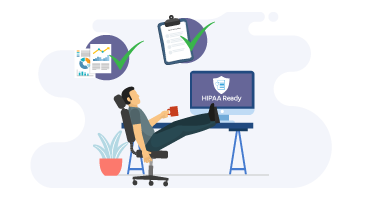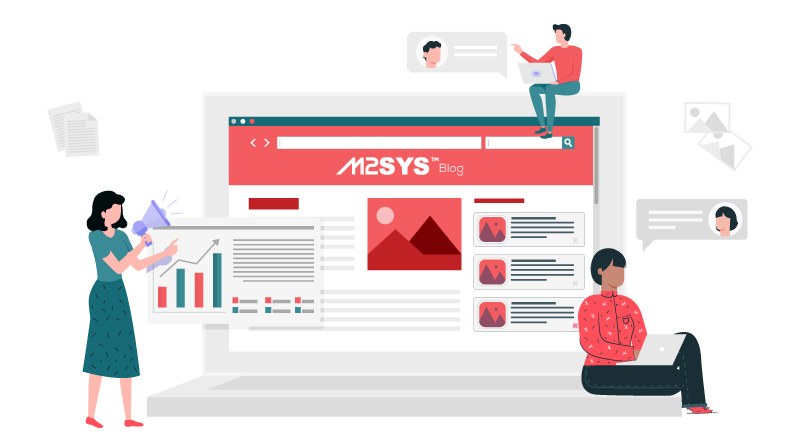BYOD and HIPAA Compliance – A fine line between privacy and exposure
Want to write a guest article for us?
We have all been hearing about BYOD (Bring Your Own Device) strategies and the importance of a mobile device management system without any clear solution in sight. More importantly, there is a fine line between BYOD strategies and HIPAA compliance, where the potential risk of data breach significantly increases.
Nevertheless, the benefits of BYOD practices far outweigh the disadvantages. For all the advantages it offers, stopping the practice of BYOD is not a wise decision.
The COVID-19 pandemic has only ramped up the practice of BYOD in large numbers. More people have switched to work from home options to contain the virus and practice social distancing. Lending devices to each employee so that they can work from home is not a feasible option either. As a result, these employees had to use their personal devices, which they already have in their homes. Even though employees aren’t bringing their devices to the workplace, the practice of using personal devices still falls under the definition of BYOD.
Defining BYOD
BYOD is the abbreviation for “Bring Your Own Device.” It means employers allow their employees to use their personal devices, such as mobile phones, tablets, or laptops for official work purposes. The use of BYOD has grown steadily over the past few years. Starting from infrequent implementation, it gradually became the norm. However, there are a few implications too.
BYOD and HIPAA Compliance
While BYOD provides staff with a flexible way of working, it also poses the risk of exposure to health data. The implications of BYOD can be severe if proper protection is not implemented. Naturally, personally owned devices will not have the same level of protection as company-owned devices.
The implications of BYOD in healthcare can be more severe because of HIPAA rules and regulations. What’s more, the healthcare industry is a prime target for cybercriminals because patients’ health records contain valuable information that cybercriminals use with malicious intent. These records include information about financial records, social security numbers, names, DOBs, passwords, etc. There is a heightened risk of these records being exposed when employees use their personal devices to access or use this information. Not to mention, the employee’s own passwords and credentials get compromised too.
Moreover, cyberattacks in the healthcare industry have increased by 45% from November 2020 to January 2021. This is why in addition to comprehensive policies and procedures regarding the use of personal devices, a solid device management system must be in place.
Consolidate all your operations under one roof with CloudApper
Today, I am not going to talk about common safeguards like email protections and device encryptions. Today, I am going to talk about an ecosystem that can boost the use of BYOD and help you comply with HIPAA at the same time.
There are many aspects of mobile device management. The mobile device management I am referring to is the use of CloudApper ecosystem services. Say, for instance, running a healthcare business will involve numerous processes. For example, patient identification process, financial process, medical assessment process, drug approval process, risk management, employee training, and so much more. You need different applications to streamline different processes.
What if you could streamline all your separate processes under one ecosystem? That would be more viable, feasible, and security-friendly. You won’t need to rely on IT infrastructure and other software to manage your business. With CloudApper, you can consolidate all your business tools under one roof and enable employees to access everything they need to be successful at their jobs.
For example, for healthcare facilities management, you could utilize CloudApper Facilities or CMMS. For visitor management, you can use CloudApper Visitors. To manage your customers, you can use CloudApper CRM, and so on.
CloudApper solutions are designed especially for optimizing mobile devices. Employees can work from anywhere they want and log information on the go. The CloudApper ecosystem makes sure you synergize the mobile workflow and goes hand in hand with BYOD practices.
Stay Compliant with HIPAA Ready
What’s more, CloudApper has a dedicated app for HIPAA compliance management. HIPAA Ready is a robust HIPAA compliance software that allows you to streamline and manage all the activities, from training to audits to policy management, to ensure you are in line with the law.
This app benefits employers as well as employees who use their personal devices. If an employer wants to provide training to their employees on cybersecurity and the use of personal devices, he or she can easily assign a trainee and schedule a training date for that particular employee. The employee will be able to access this information and respond accordingly from anywhere they want.
To learn more about the CloudApper ecosystem and HIPAA Ready, leave a comment below or try a free trial now.













Thanks for sharing. The HIPAA Privacy Rule and HIPAA Security Rules may sound similar, but there are two important distinctions.